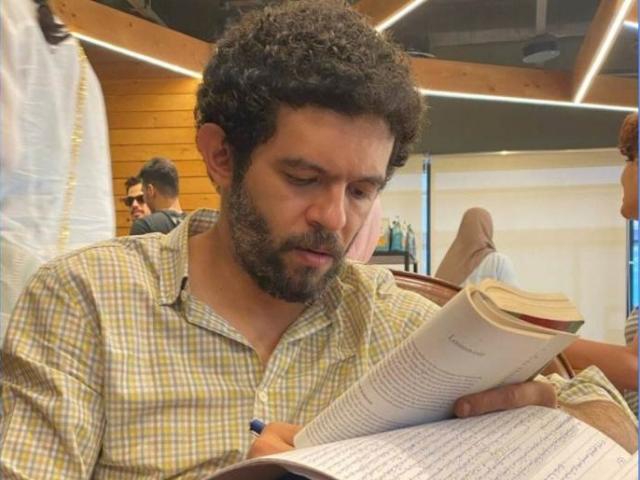
EIPR calls on the Public Prosecutor to release Ashraf Omar and end targeting of journalists
Press Release
The Egyptian Initiative for Personal Rights (EIPR) calls on Public Prosecutor Mohamed Shawky to immediately release translator and cartoonist Ashraf Omar, who has been in pretrial detention for nearly seven months and will be presented tomorrow, Wednesday Feb 5th, to the Terrorism Circuit of the Cairo Criminal Court detention hearing session, which will be held - via videoconference - at the Badr courts complex to consider the renewal of his detention.
Omar was arrested from his home on July 21st, 2024. He appeared two days later before the Supreme State Security Prosecution, and was questioned in connection with Case No. 1968 of 2024 (Supreme State Security) on charges of "spreading false news, misusing social media, and joining a group established in violation of law". He has since been detained at the 10th of Ramadan prison 6.
Since the beginning of his detention, Omar, like the rest of detainees in Egyptian prisons, has not been able to communicate with the outside world properly, due to the Ministry of Interior's violation of the legally stipulated form of prison visits, and the standardization of the severely reduced format of visits adopted since the outbreak of Covid-19 as an exceptional measure, as visits were reduced to only one visit per month for 20 minutes.
On the other hand, the Public Prosecution recently detained journalist Ahmed Serag after he conducted a video interview with Omar's wife, academic Nada Moghith, in which she spoke on the circumstances of her husband's arrest, and detention conditions. On January 15th, Moghith was brought before the State Security Prosecution, which accused her of joining a terrorist group, spreading false news, and misusing social media, in connection with Case No. 7 of 2025. Moghith was later released on bail of 5,000 pounds. Meanwhile, Serag was interrogated in the same case, and was held in reman detention in the same prison with Omar.
According to the Journalists Syndicate, Omar and Serag’s cases are no exception, as at least 25 journalists are detained for performing their journalistic work or exercising their constitutional right to freedom of expression. More than half of those journalists are being held illegally after exceeding the legal maximum limit for pretrial detention. The rest are either held in pretrial detention or serving jail terms.
On January 28th , the Egyptian government received 21 recommendations from 21 countries regarding freedom of expression and media, during the Universal Periodic Review session on the human rights situation in Egypt. The recommendations stressed the need to stop prosecuting journalists for doing their job and exercising their right to express their opinions, and ensuring their independence and protection.
EIPR reiterates that Omar, Serag, and Moghith have not been faced with credible evidence or exhibits that could make a "terrorism" indictment viable, and that they were merely detained for exercising their constitutional right to express their opinions or doing their journalistic work. EIPR stresses the need to abide by Article 134 of the Criminal Procedures Law, which specifies clear cases of resorting to pretrial detention as a precautionary measure, none of which applies to Omar, whose detention renewal is set be considered tomorrow. Nor do these conditions apply to Serag, whose detention renewal is set to be considered next week. EIPR calls on Public Prosecutor Mohamed Shawky to use his legal powers to release both Omar and Serag immediately, drop the charges against them and those against Moghith, and close the cases they are involved in.



